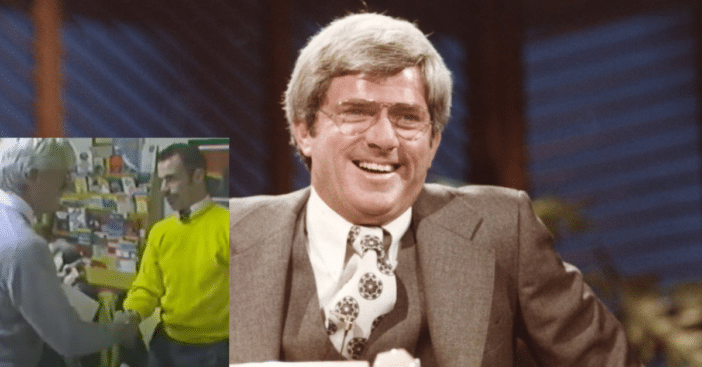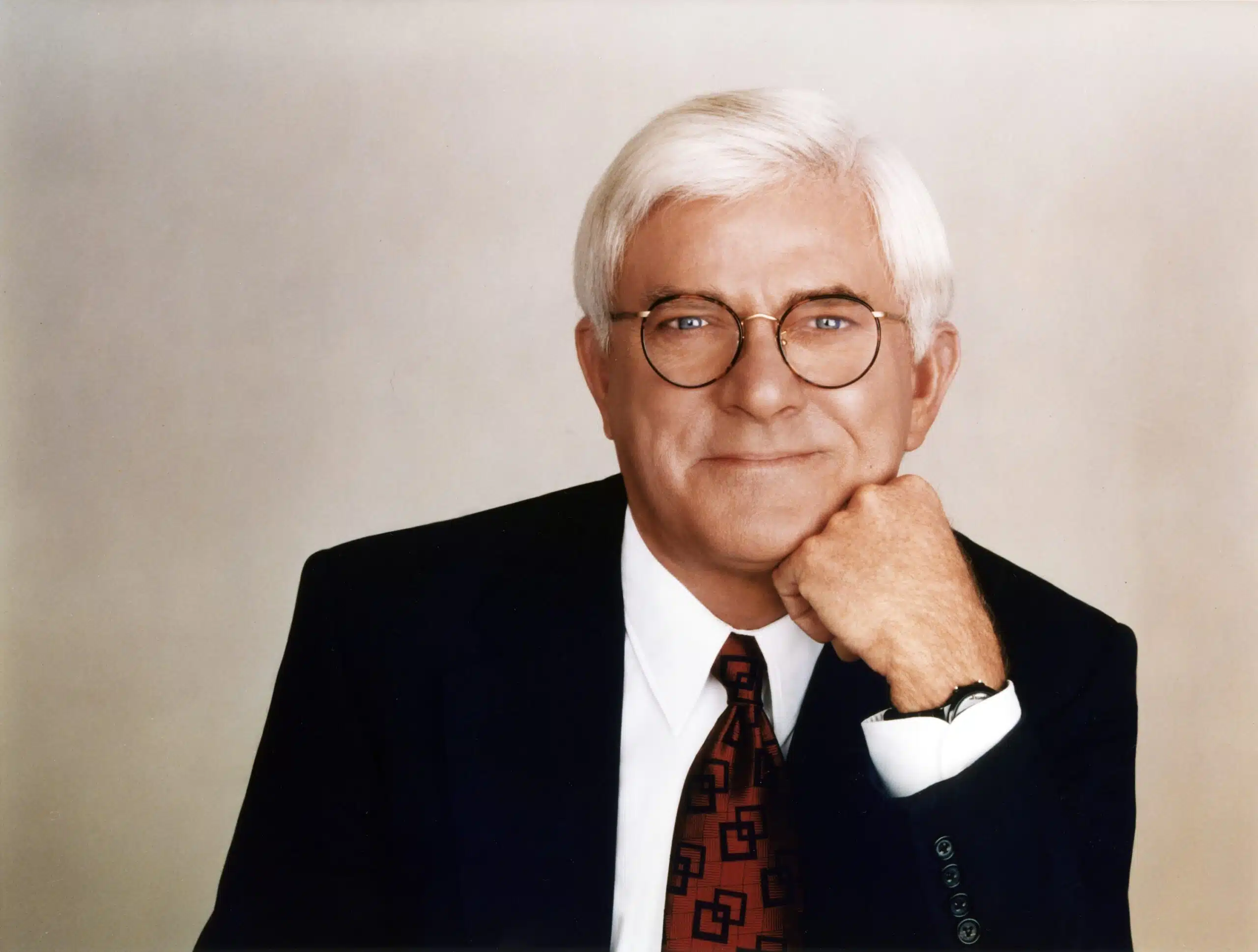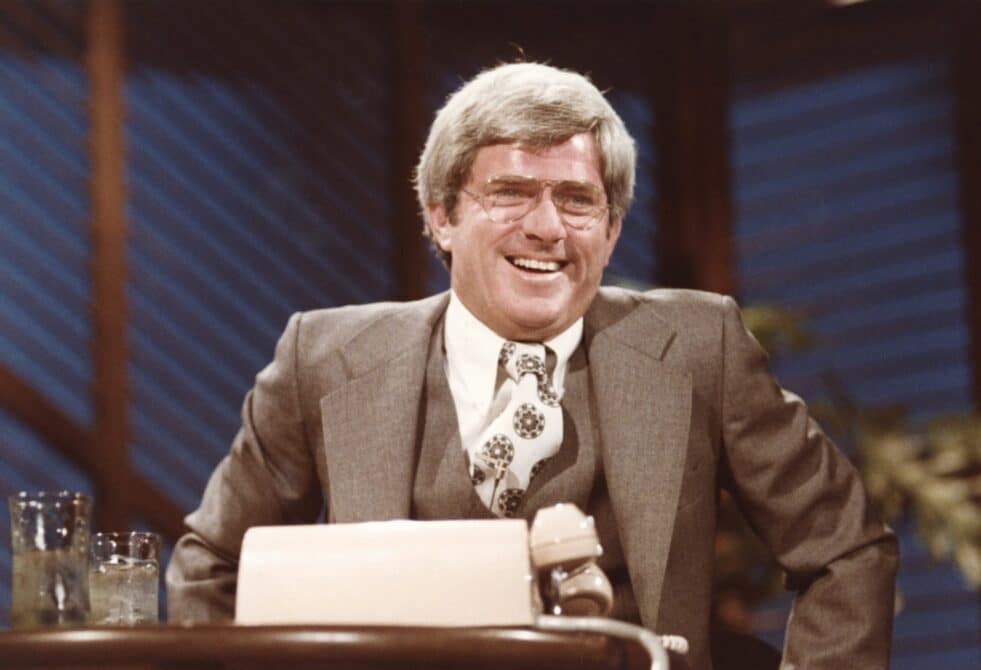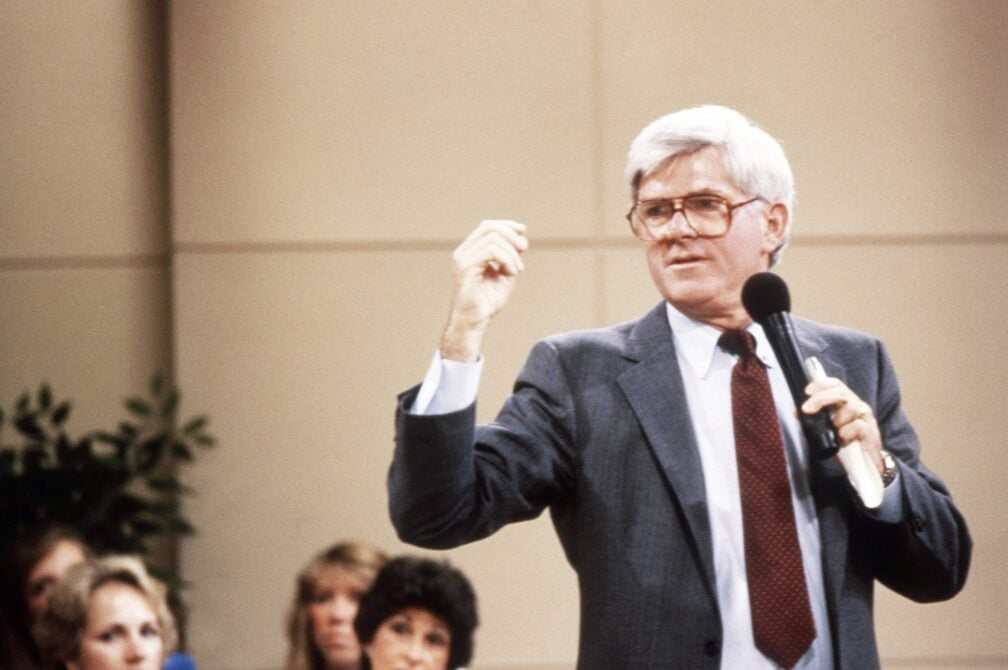
Phil Donahue, who passed away earlier this week, was widely regarded as the pioneer of the modern daytime talk show format through his groundbreaking program, The Phil Donahue Show, later renamed Donahue. The show originally aired in Dayton, Ohio, in 1967 and quickly gained popularity and achieved national syndication by 1970.
Donahue’s show was revolutionary for its era, departing from traditional talk show norms centered on celebrities and entertainment. Instead, it courageously tackled controversial and taboo topics, bringing these discussions into the homes of everyday Americans. Notably, it made history by being the first show to feature an interview with an AIDS patient live on television.
Phil Donahue made a bold broadcast with an AIDS patient

In 1982, Phil Donahue hosted an unconventional episode of his iconic talk show that featured Philip Lanzaratta, who had been diagnosed with Kaposi’s Sarcoma, a cancer strongly associated with AIDS. At the time, HIV/AIDS was still a mysterious and terrifying disease, with only a few hundred known cases. Alongside Lanzaratta, the late talk show host also brought on Larry Kramer, a screenwriter and co-founder of the Gay Men’s Health Crisis, and Dr. Dan William, a physician working directly with HIV/AIDS patients.
RELATED: Meet The Five Children Of Phil Donahue And Marlo Thomas
The episode was remarkable not only for its timing but how Donahue guided a discussion that addressed the alarming rise in cases, the symptoms of the disease, and the critical need for educating the medical community, which was still struggling to understand and respond to the epidemic. The show also confronted the harsh reality of discrimination faced by the gay community, who were disproportionately affected by the virus and often unfairly stigmatized because of it.

Phil Donahue remained committed to the cause of HIV/AIDS
Donahue dedicated much of his career to shedding light on the struggles faced by HIV/AIDS patients. In 1986, he produced a powerful and emotional segment at St. Claire’s Hospital in New York City, where he was seen cradling grieving patients in his arms, a highly significant gesture at a time when fear and stigma surrounding the disease were so pervasive that even many healthcare professionals hesitated to physically interact with those affected.

In fact, his commitment to the cause extended beyond his television work. In 1990, he took on a deeply personal role as a pallbearer at the funeral of Ryan White, a young hemophiliac who had contracted HIV/AIDS through a contaminated blood transfusion and tragically passed away at just 18 years old. Donahue has passed away, but he will always be remembered for his legacy and advocacy for HIV/AIDS survivors.
